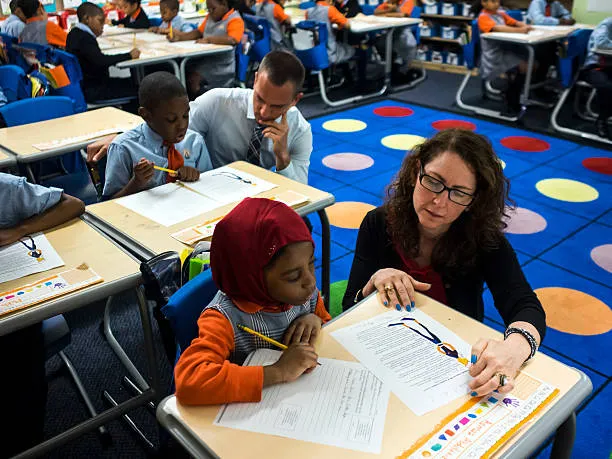A major legal battle is unfolding over whether taxpayer-funded charter schools can promote religious teachings. Supporters argue that religious freedom allows faith-based education with public funds, while opponents claim it violates the separation of church and state. This legal clash is set to shape the future of education and religious rights in the U.S.
Background: What Are Charter Schools?
Charter schools are publicly funded but operate independently, often with more flexibility than traditional public schools. While they must follow federal and state education laws, they are granted autonomy in curriculum design, staffing, and administration.
- Publicly Funded, Privately Operated: Unlike private schools, charter schools receive taxpayer money but are run by independent organizations.
- State-Specific Regulations: Each U.S. state has different rules governing how charter schools function.
- Rapid Growth: Over 3.7 million students were enrolled in charter schools in 2024, making them a significant part of the education system.

The Legal Dispute: Religion in Publicly Funded Schools
The central question in these legal battles is whether religious charter-schools should receive public funding. Lawsuits are being filed in multiple states, challenging the right of religious institutions to operate schools while accepting taxpayer dollars.
Key Legal Arguments
- Supporters’ View (Religious Freedom & Parental Choice)
- Parents should have the right to send their children to faith-based schools using public funds.
- Religious organizations argue that denying them access to school funding is discrimination.
- Supreme Court rulings have recently favored religious rights in education, strengthening their case.
- Opponents’ View (Separation of Church & State)
- The U.S. Constitution prohibits government endorsement of religion, which includes funding religious education.
- Public money should go to secular education, ensuring fairness for students of all backgrounds.
- Allowing religious charter schools could set a precedent that blurs the line between church and state.
Major Lawsuits and Court Decisions
1. Oklahoma’s Controversial Approval
- In 2023, Oklahoma became the first state to approve a religious charter school, St. Isidore of Seville Catholic Virtual School.
- Critics filed lawsuits, arguing that this decision violates the Establishment Clause of the First Amendment.
- The case is likely to reach the U.S. Supreme Court, setting a national precedent.

2. West Virginia’s Ongoing Battle
- Religious organizations in West Virginia are pushing for charter school funding.
- State officials argue that it would divert funds from public schools.
- A ruling in this case could impact similar disputes across the country.
3. Maine and Vermont’s Supreme Court Wins
- These states previously denied funding to religious schools but lost in the Supreme Court.
- The court ruled that if states fund private schools, they must also fund religious ones.
- This decision is now being used to justify religious charter schools.
Potential Consequences
1. Impact on Education System
- If religious charter schools are allowed, it could lead to a wave of new faith-based schools funded by taxpayers.
- Public schools may face budget cuts as funds are redirected to religious institutions.
- Education policies across states will need to adapt to new legal interpretations.
2. Religious Diversity and Conflicts
- If one religious group gains access to funding, others will likely demand the same rights.
- Controversy could arise over which religions qualify for funding and how their curricula align with public education standards.
3. Supreme Court’s Role in Shaping the Future
- Given past rulings favoring religious rights, the Supreme Court could pave the way for more religious charter schools.
- However, a strong ruling against religious funding could reinforce the separation of church and state.

Conclusion: What Happens Next?
The battle over religious charter schools is just beginning, and its outcome could redefine education funding in America. As courts continue to rule on these cases, parents, educators, and lawmakers must grapple with the complex relationship between faith and public education. Whether religious charter schools become the new norm or remain blocked by legal barriers, the debate over taxpayer-funded religious education is far from over.
Do Follow USA Glory For More Updates.






